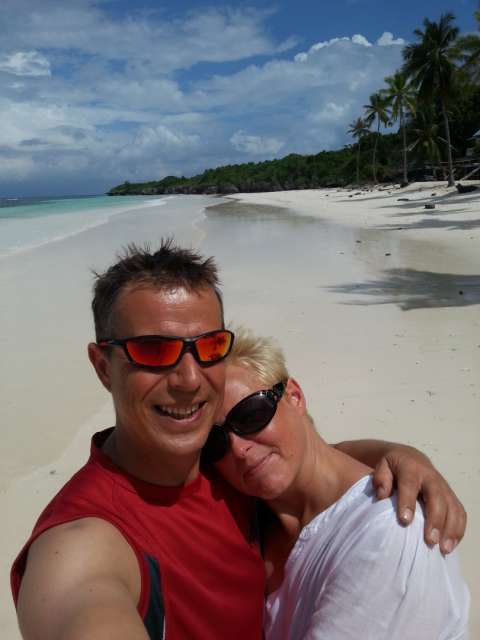
Dibbeldabbeldour-Südsee und mehr
vakantio.de/dibbeldabbeldour-suedseeundmehr
04.10.2016 Fiji # Hello Taveuni
Published: 04.10.2016
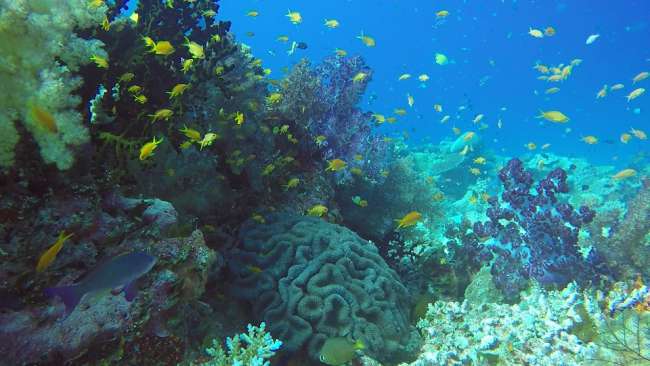
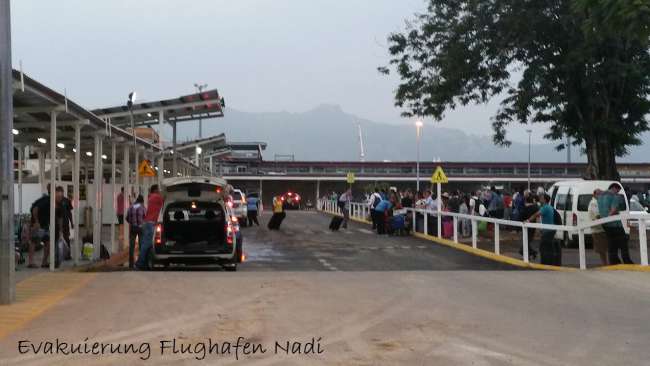
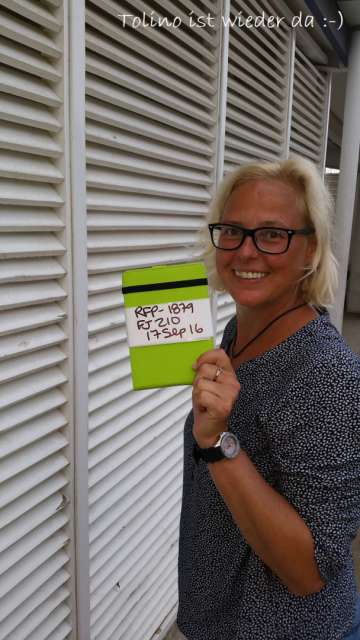
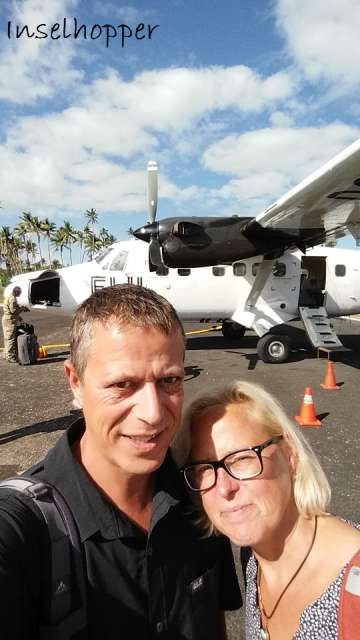
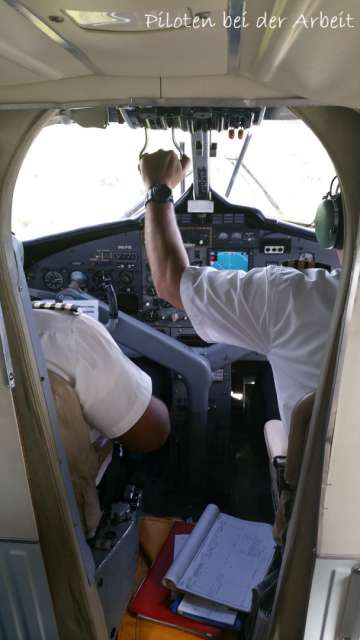
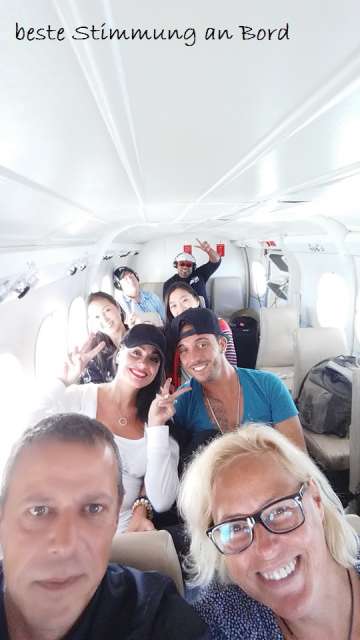
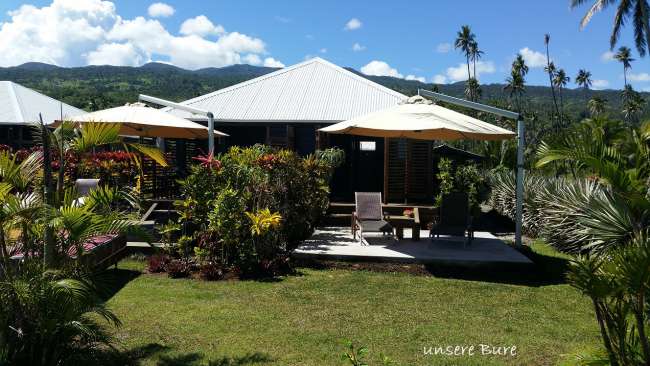
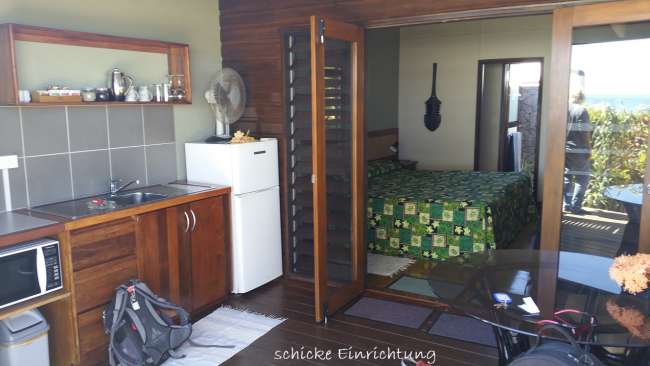
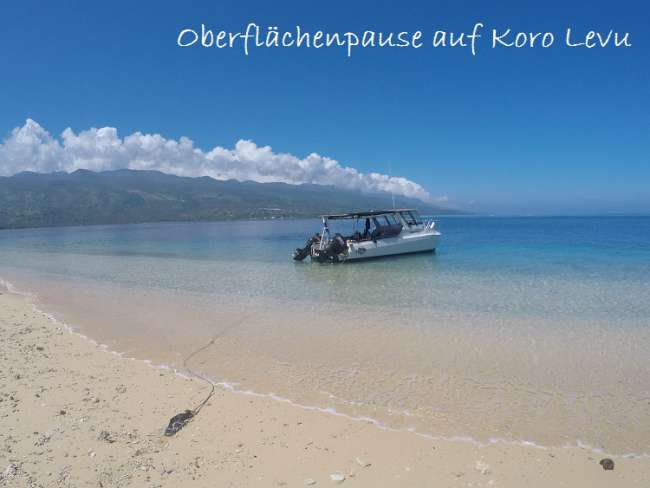
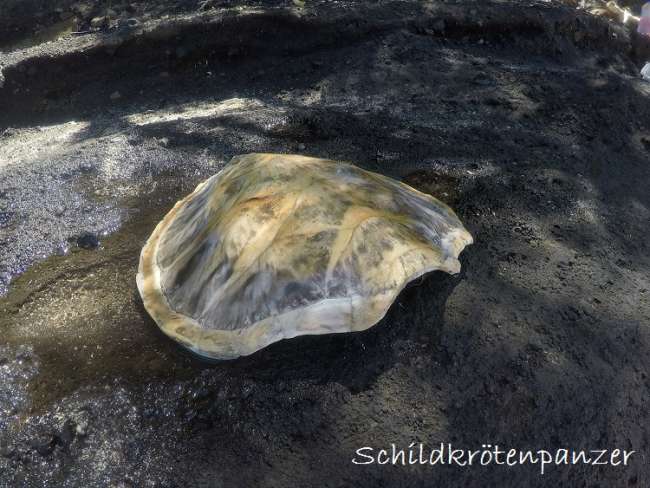
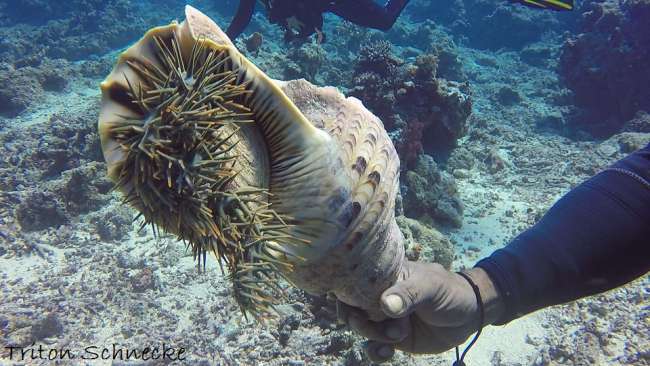
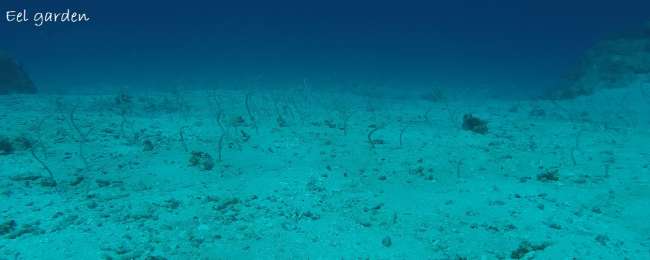
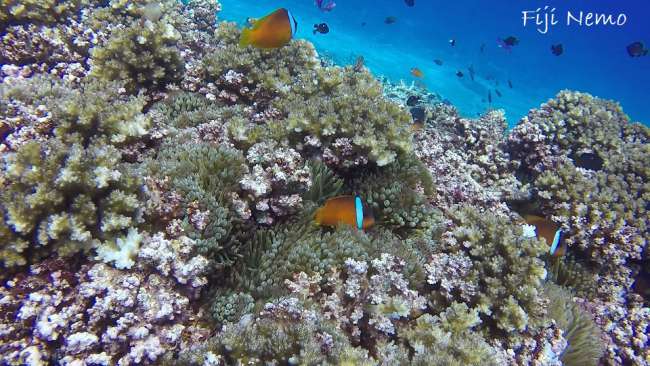
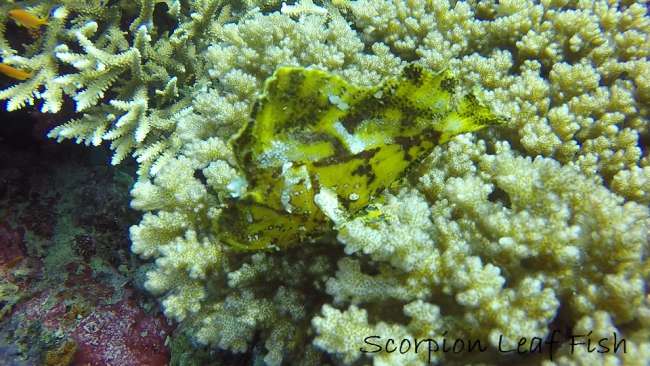
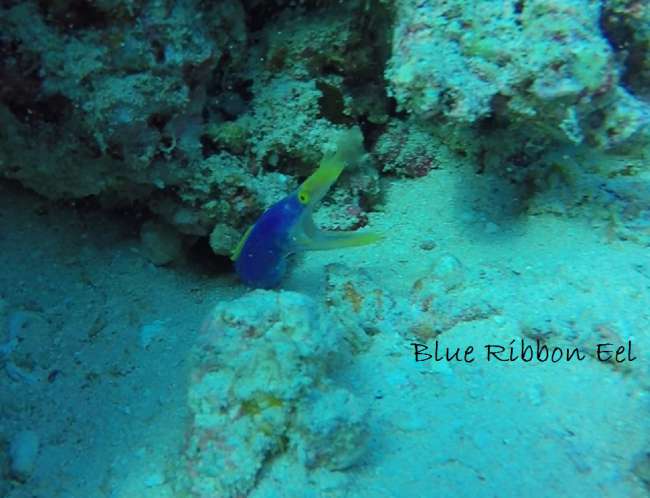
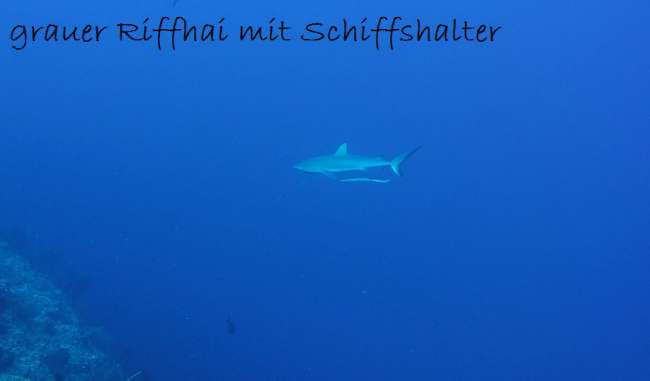
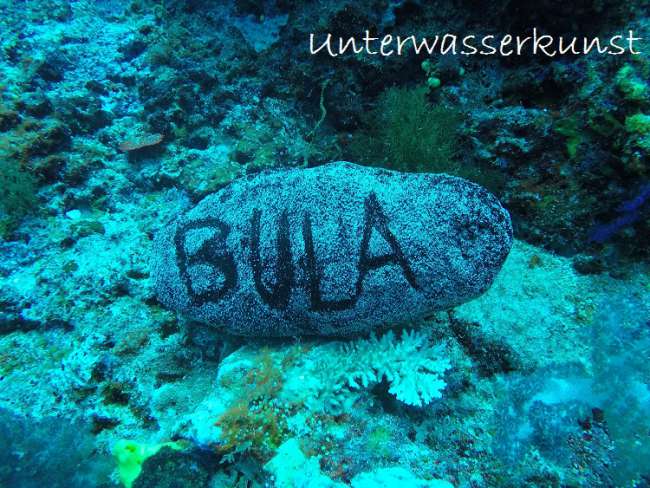
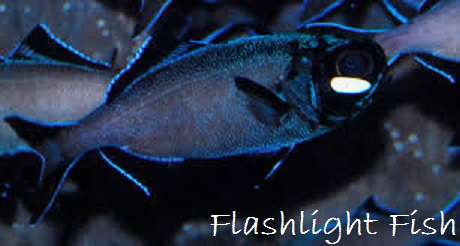
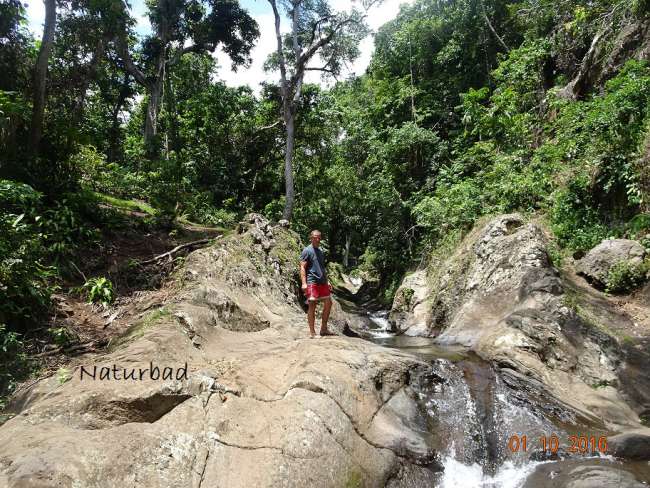
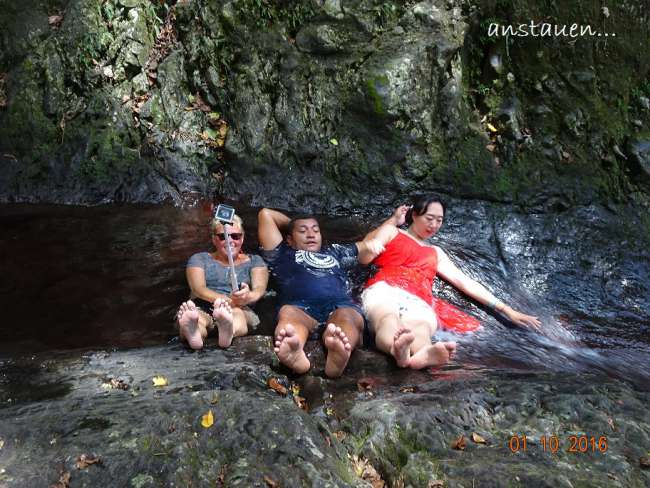
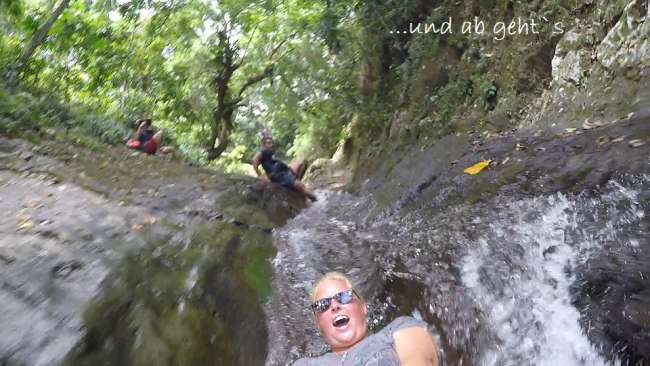
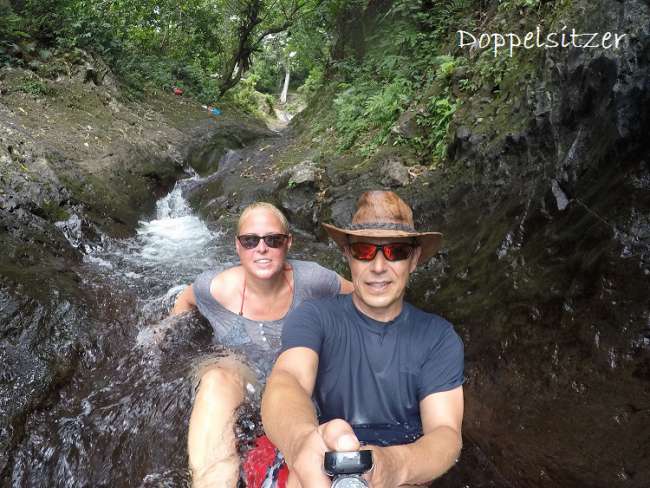
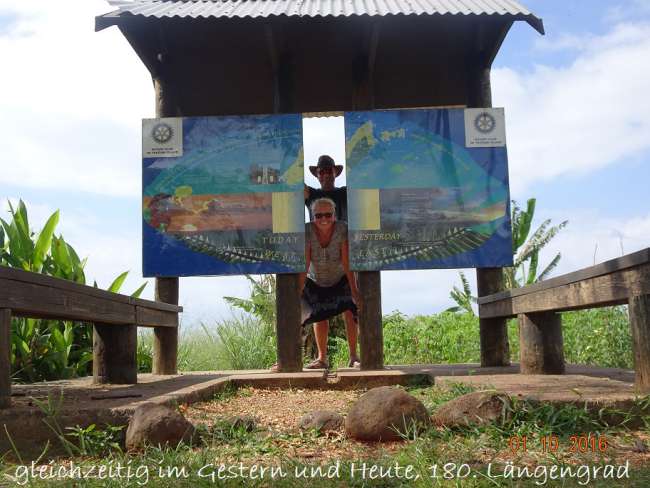
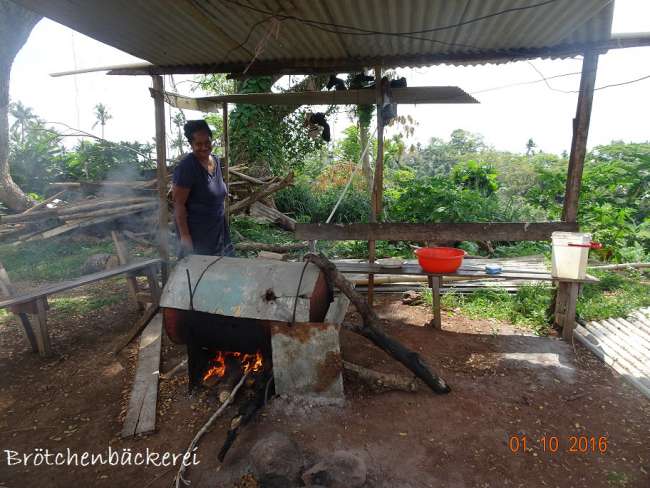
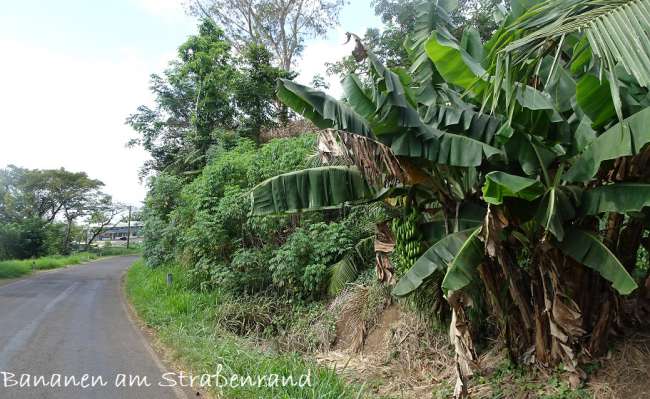
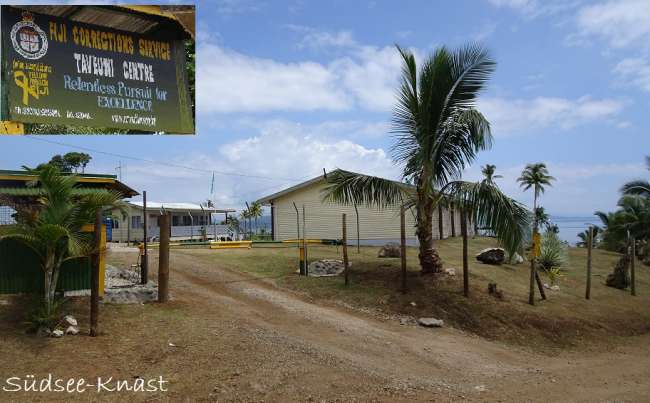
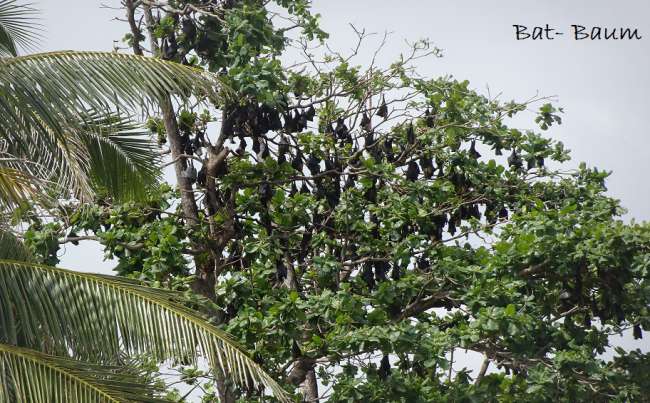
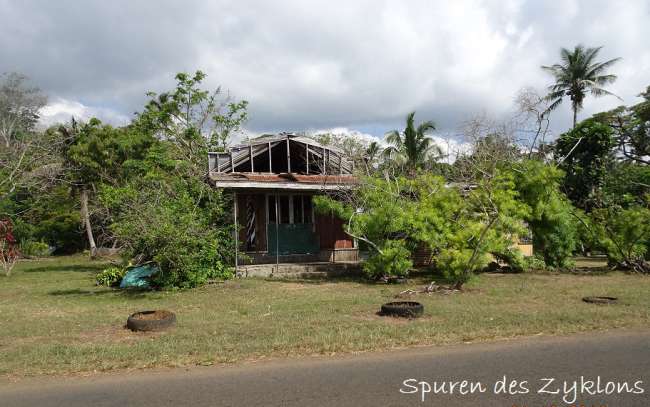
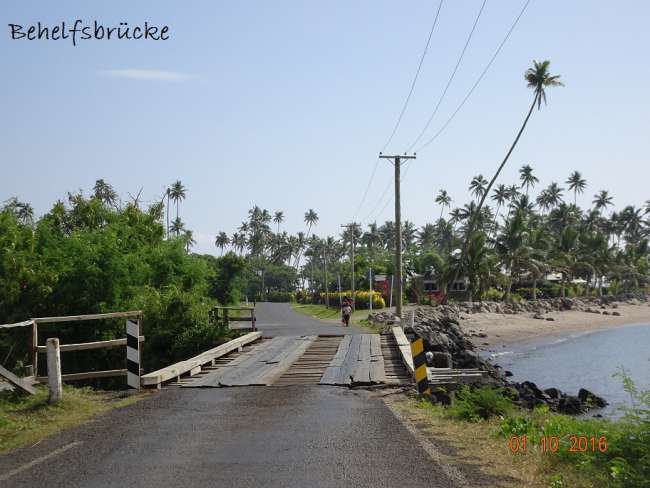
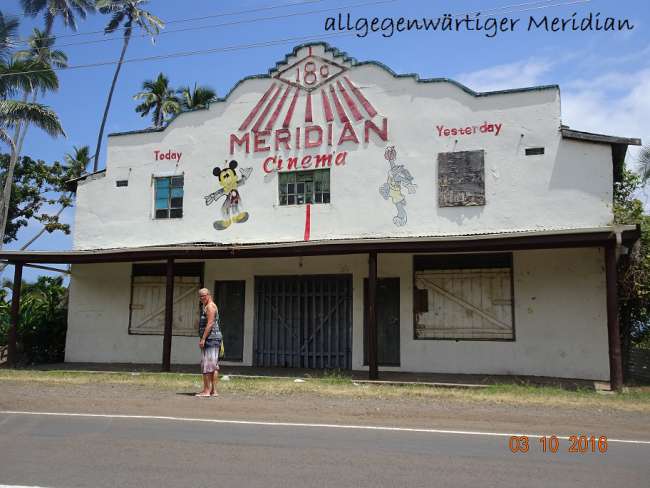
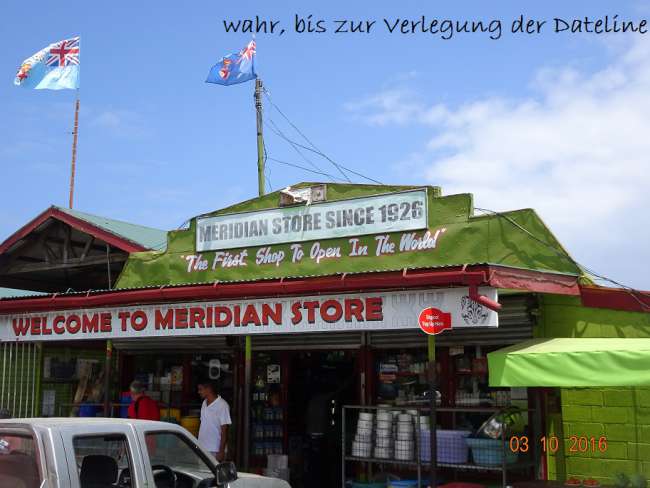
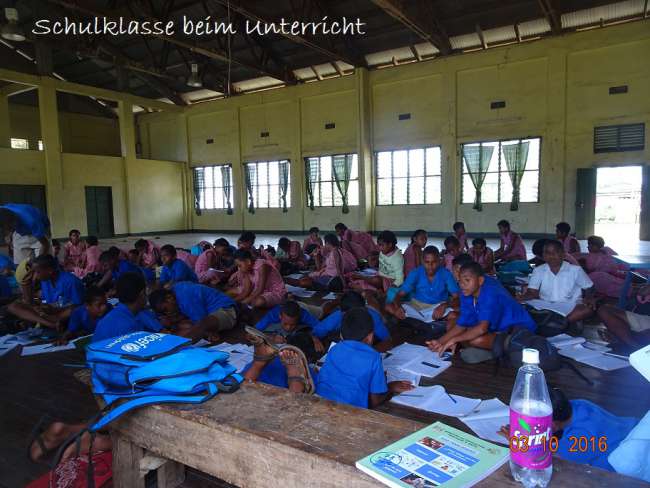
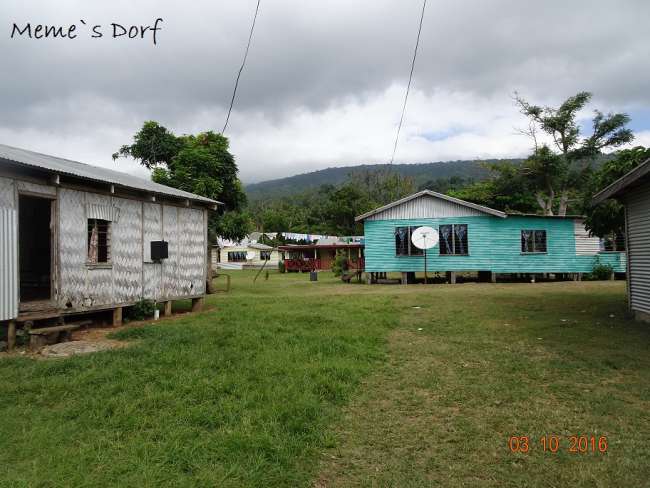
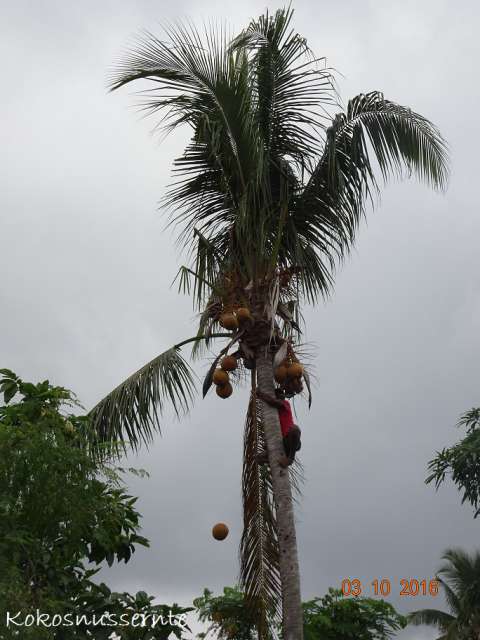
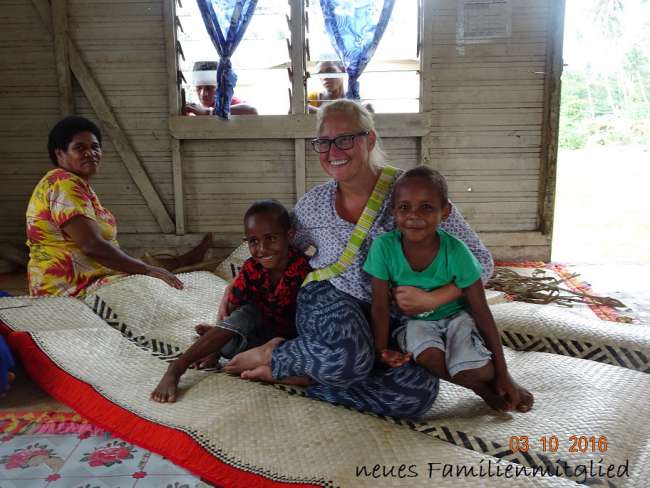
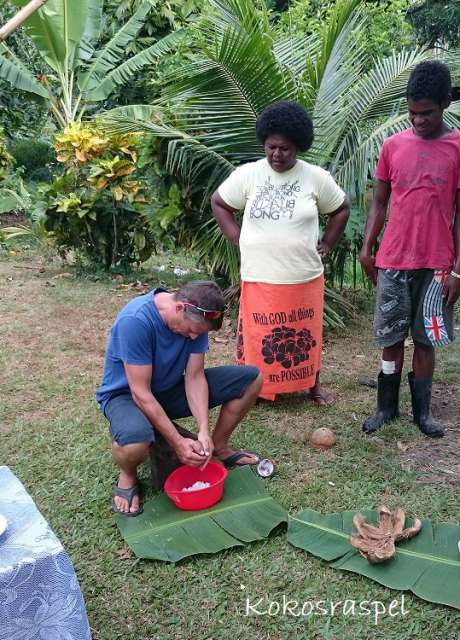
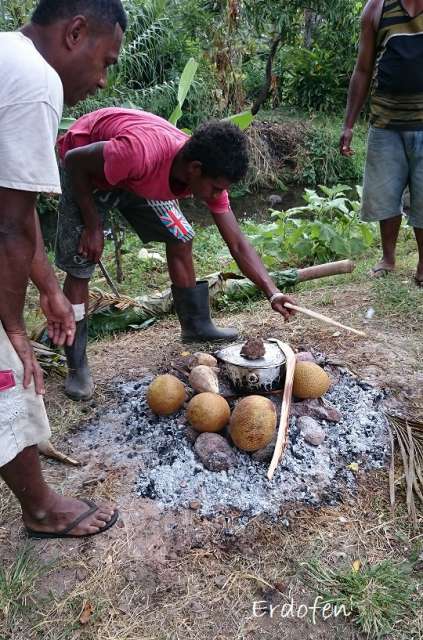
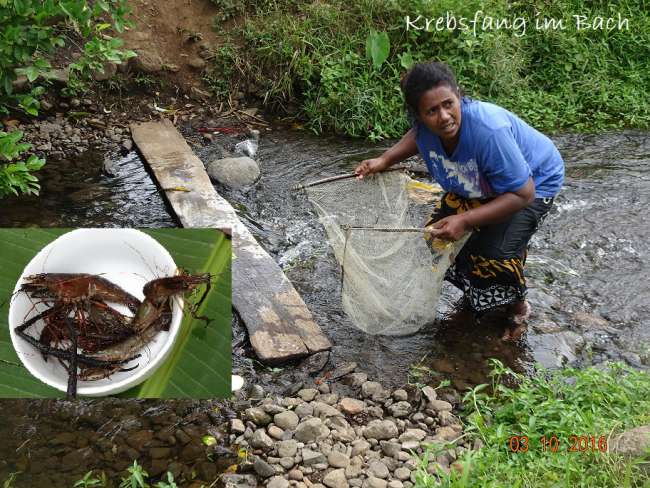
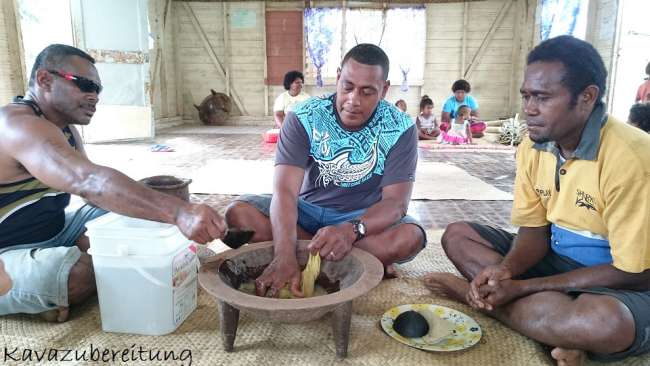
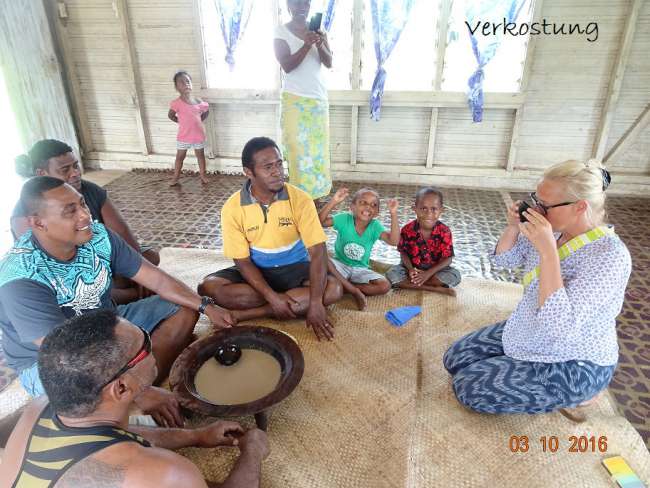
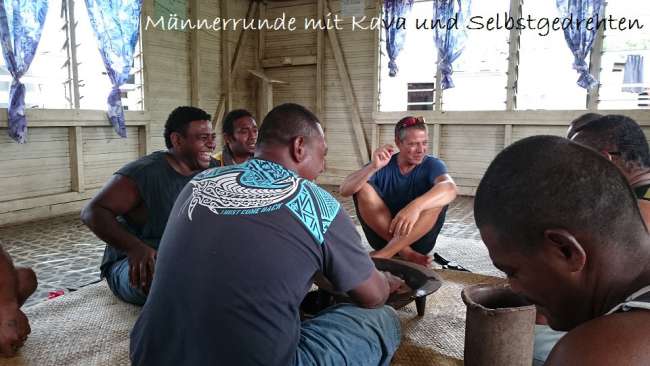
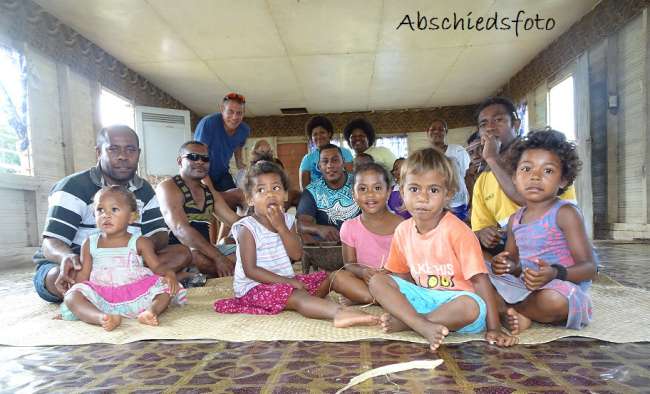
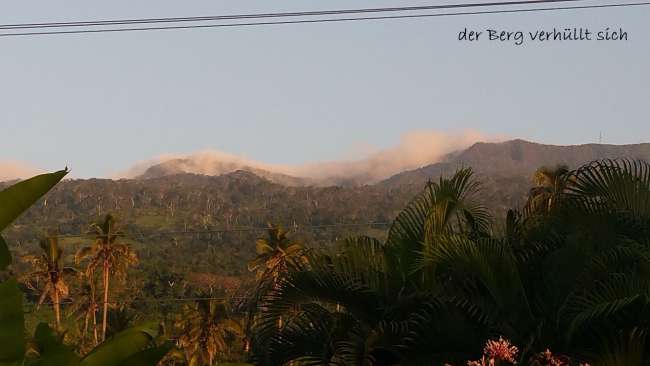
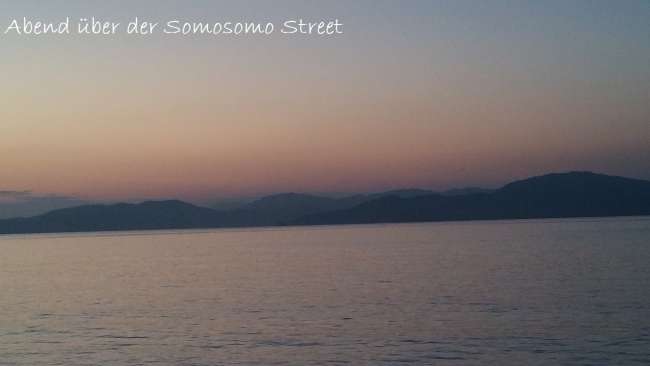
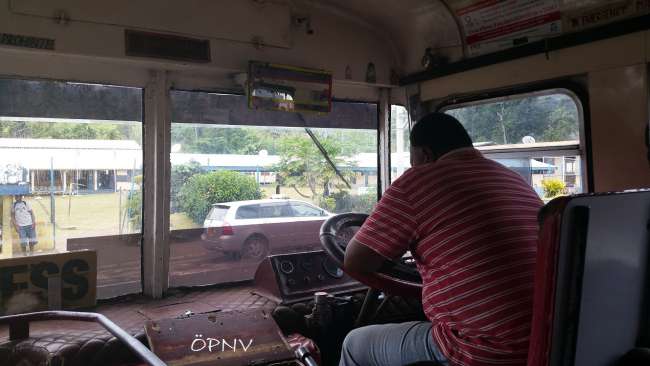
Subscribe to Newsletter
We arrive at Nadi Airport from Samoa on time at 5.00am with the plane and have about two hours until the flight to Matei on Taveuni. I raid an ATM while Maike looks for her Tolino and is sent from pillar to post in the departure terminal. Suddenly, there is a discreet rush and the airport staff forcefully escort all passengers out onto the street and evacuate the entire terminal. It is probably a silent fire alarm or something similar, as nothing can be heard. After half an hour, the spell is broken and normal operations can continue.
In the meantime, we have checked in for the onward flight. Island hopping is operated with small Twin Otters planes (max. 19 passengers) and we have a luggage allowance of only 15kg. So, we are not surprised that we are promptly charged at the cash desk for the 10kg we are over the limit. Well, we get away with 61.50 FJD. We use the last minutes before boarding to finally find the mysterious office that is supposed to house our eBook and in the process, almost get to know the entire office area of the airport. Finally, we find it and after a short search, the employee also finds the coveted piece. All is well again.
The flight to Taveuni is quite pleasant. We are sitting in the second row and can watch the pilots at work. In addition, the row in front of us is empty and after the backrests have been folded forward, we enjoy the couch feeling.
Jim from Aroha Beach Bures awaits us in Matei and takes us directly to our bungalow in just under 30 minutes. We congratulate ourselves once again on our lucky booking. Aroha is a small, very well-kept facility with tastefully and practically furnished, extremely clean bures overlooking Somosomo Street. We feel comfortable right away. Friendly "Bula" greets us from all directions. A great universal word. It is said as a greeting, when someone sneezes, while drinking kava, or simply when you want to start a conversation with someone.
In the first few days, we focus on diving. The Rainbow Reef is known as one of the top 10 dive sites in the world and of course, we don't want to miss it. We already made contact with Taveuni Ocean Sports at the end of last year and booked two diving days. Since then, we haven't heard from the dive center, so we are somewhat skeptical whether they will actually pick us up at the agreed time. Yes, they do. Almost exactly on time, we are picked up by Julie, an exceptionally nice American woman and at the same time the boss of the dive center, at Aroha. You can tell that she is a passionate diver herself. The dive operation is organized in the way divers wish for and impresses with many fine details. For example, there are towels on the boats, which is not the norm everywhere. The refreshments during the surface intervals consist of various drinks, plenty of fruit, vegetables, and snacks. Safety is highly valued, but without any hassle for the divers. The groups are put together according to experience level and the guides have a good sense of when to intervene. In general, it is a lot of fun to dive with the guys or hang out with them on the roof of the boat during the break.
The Rainbow Reef lives up to its reputation. We complete four beautiful dives at different spots and are so impressed by the colorful underwater world with various hard and especially soft corals that we immediately add another day of diving. Maike prefers not to participate in an additional night dive. She should not have skipped it, because it was amazing too. In a small cave in the reef, I see Flashlight Fish for the first time. After everyone has turned off their lights, hundreds of small blue lights, similar to LEDs, suddenly appear and illuminate the entire entrance. A magnificent sight.
We complete the last dive at the Rainbow Reef at Swirling Rainbow. As it is currently a new moon, the currents are particularly strong at the moment and swirling is an understatement. We experience a real high-speed train ride underwater and when Bill, one of our dive buddies, loses a fin and drifts uncontrollably through the landscape, it creates a momentary shock. But Manasa, our very experienced guide, quickly takes control of the situation. Clinging to a rock, the fin is returned to its owner. A short time later, the merciless current carries me a distance away from the group and I have no chance of getting back to them. So, I let myself drift and consider surfacing alone when I see the bubbles of another group in the lee of the current. Okay, I'll just join them. AP, the guide, signals to me in response to my question whether the others are not looking for me, that Manasa noticed that I had changed groups and am doing well. Working against the current has of course consumed a lot of air. So, we end the dive after only 35 minutes, but with sufficient reserves.
It's a pity that we are unable to dive The Great White Wall, one of the most beautiful spots here, with countless white corals. To dive there, certain conditions are required, which we didn't have at the moment. Well, one more reason to come back :-)
On the first day without diving, we explore the surrounding area on foot. In the next village, there is supposed to be a natural water slide. We want to check it out. After some detours in the extreme heat, a little boy from the village finally shows us the way through the jungle. We follow the small path and arrive at a creek where the water has washed and smoothed the large stones considerably. While we are still puzzling about how to get in, Rafa, a local guide from another resort, suddenly appears with two Chinese women at the spot. He shows us how to sit in the channel, create a small dam with the water, and then let ourselves be carried down about 10-15m downhill. What fun :-) We spend a good two hours there in the pleasant coolness of the forest. In between, we chat a bit with Rafa while smoking a cigarette. He tells us about the cyclone that hit Fiji in February and caused huge destruction. It is said to have been the most intense cyclone ever recorded in the South Pacific region. The whole island, now in lush green, was allegedly brown at that time. Of course, we also heard about it at the time and had doubts whether we could even come here. So, we are even happier that many of the damages have since been repaired and nature has returned to its normal appearance.
Around 1.00pm, as predicted by Rafa, suddenly a lot of people from the village, mainly children, appear at the bathing area. We are curiously watched and after a friendly "Bula" from us, we are asked about where we come from, etc. Probably also because of us, the boys immediately start performing daring tricks by sliding down the channel standing up or catapulting themselves into the water with somersaults. Unfortunately, we have to say goodbye because we have another destination on this day.
Taveuni is one of the few places that is crossed by the 180th meridian, i.e. the International Date Line. On land, mind you. Until the political relocation of the Date Line to the east, this used to be the first place in the world where the sun rose. Geographically speaking, it is still the case. The people here are quite proud of it and there are indications of "the meridian" everywhere. This also includes a small sign on the edge of a rugby field where you can almost simultaneously stand in today and yesterday. Right next to it, a woman bakes rolls for catering in a converted oil drum. Unfortunately, they are not ready yet, so we cannot taste them. But they smelled delicious.
We spend a very nice afternoon in Meme's village. Meme works at Aroha and has taken a liking to us. Her family shows us some of their daily life. One of the boys skillfully climbs a pretty tall palm tree to pick a few coconuts for us. Some crabs are quickly caught from the stream and cooked in the quickly prepared coconut milk. Not for me, but Maike enjoyed it. The people notice that we are very interested in their lives and are also quite uncomplicated ourselves. This creates a relatively relaxed atmosphere and everyone has fun. After tasting the food from the earth oven, various vegetables, roots, and fish, it's time for the kava round. We are shown everything from the harvest of the roots to the production of the powder and the preparation to the correct behavior when drinking. In the end, we sit in a cozy circle with half of the village around the kava bowl, smoke cigarettes rolled by the locals, drink the brown liquid, and chat about this and that. The people are at least as interested as we are and ask us many questions. Kava is not really tasty. Someone once said it looks like dishwater and tastes like it too. There is actually nothing to add to that. We didn't feel any calming effect either. Only the fuzzy feeling on the tongue remains for a while. Maybe the mixture wasn't strong enough out of consideration for us. But that was fine too. At some point, we have to say goodbye because Meme has to work and wants to take us back to the resort. We take one last group photo and everyone shakes hands with us and asks when we will come back. We'll see, but it was definitely fun.
We enjoy the last hours on Taveuni, which has provided us with many beautiful impressions in a few days. When we say goodbye to Meme on the last evening, she has a few tears in her eyes. We have clearly found friends here.
This afternoon, we are heading to Viti Levu. The plane was supposed to leave at 11:20am. After Jim consulted the airport on the phone, we are now on the list for 2:00pm. Let's see if that works out well.
Subscribe to Newsletter
Answer
